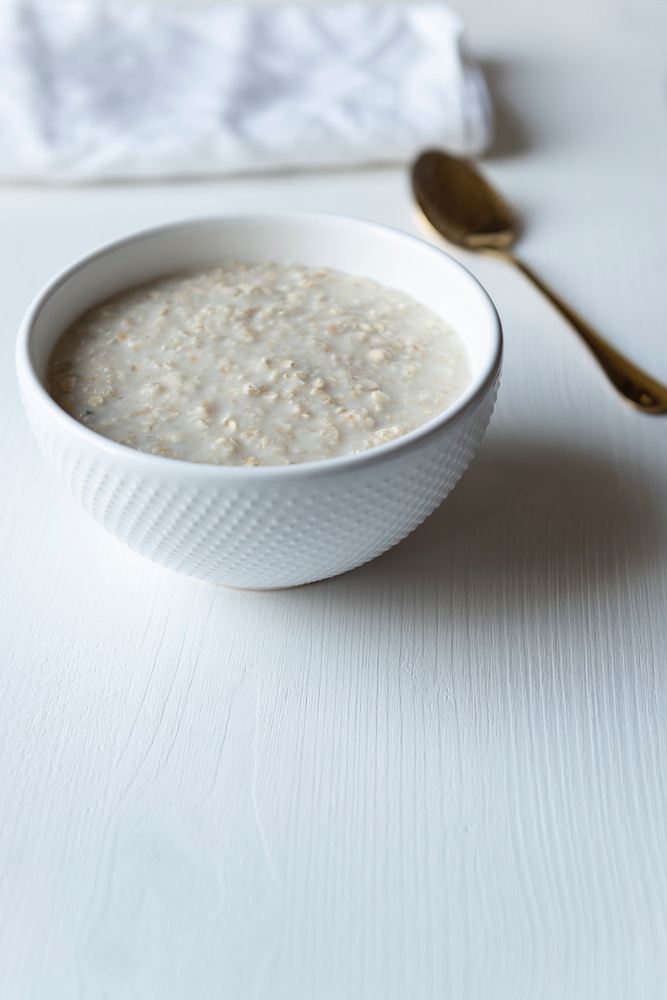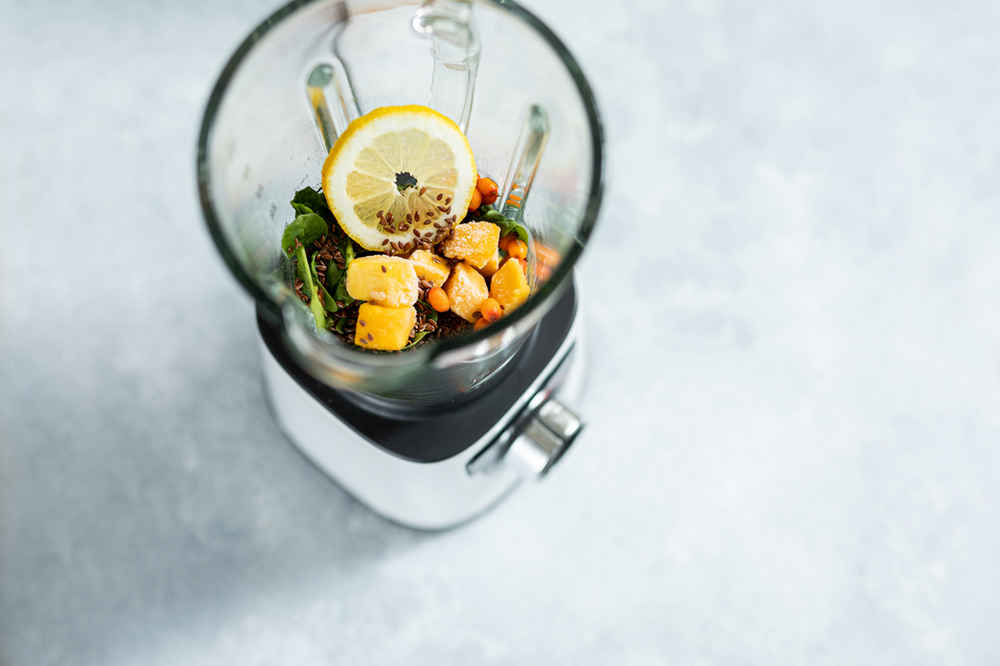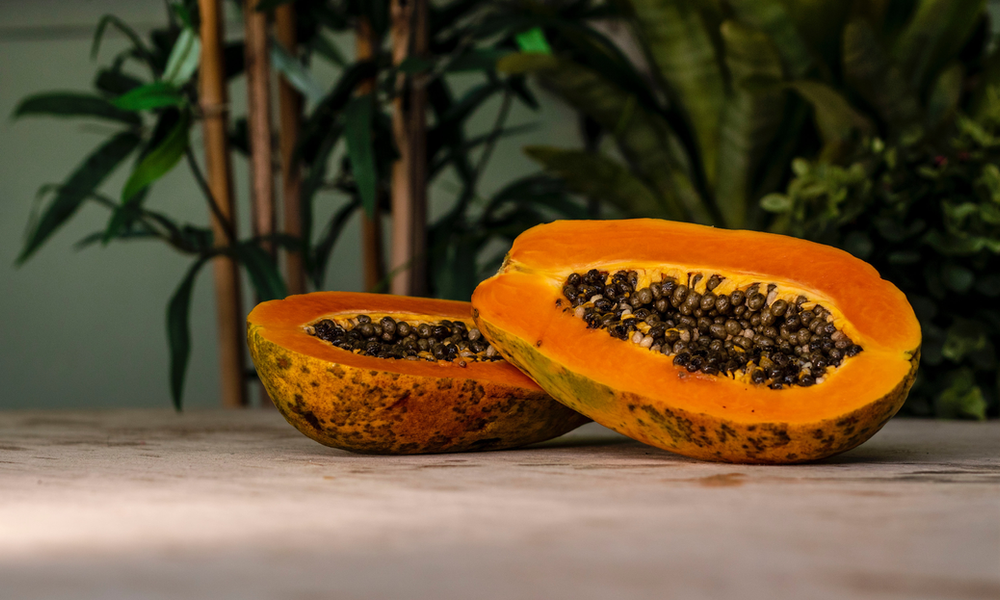Digestion is a complex process that begins in the mouth and continues through the esophagus, stomach and small and large intestines. This means that food travels for a total of up to 30 feet in adults. Not only does our food travel a long way, but breaking it down, absorbing and eventually excreting it involves various organs, hormones, nerves, and enzymes. With so many processes and components, no wonder things can go awry! Consuming foods that are easy to digest, can help.
Gastrointestinal (GI) symptoms can range from nausea to heartburn to constipation and diarrhea. Among these symptoms, abdominal pain and indigestion are among the most common and also have a big impact on quality of life. These symptoms are often a reaction to food and can also be accompanied by diarrhea, gas, bloating and/or cramping. Most people have had the experience of eating something that doesn’t “agree” with them and feeling awful afterwards. While each person is different, there are some guidelines and specific foods that can be helpful. This list can also be helpful for those recovering from an illness, when digestion might not be at full capacity.
Whether you have a sensitive stomach or are recovering from an illness, it can be tempting to gravitate toward easy foods, such as saltines, ginger ale and toast. As a registered dietitian, however, I invite you to consider some whole food options that will both bring ease to your meals and snacks and fuel your body with nutrients to boost immunity and fight inflammation.
Below, I will delve into some guidelines to observe when dealing with stomach upset and digestive issues, including what foods to avoid. Let’s begin with the foods that I recommend!

Top 7 Easy to Digest foods:
1. Peppermint
In terms of bringing immediate relief to a bout of stomach upset, peppermint is a solid option. This herb has been shown in studies to be effective in relieving symptoms of irritable bowel syndrome (IBS), including abdominal pain and bloating, gas and diarrhea. (1) Peppermint can be taken as a supplement, in which case you should look for an enteric-coated formulation. This type of coating keeps the pill intact until it reaches the intestines. Peppermint teas are also a good option, as they are widely available, and soothing when consumed as a hot beverage. If you have fresh peppermint, you can also steep the leaves in hot water for several minutes. Then, strain and drink.
2. Oatmeal
Oats are a low FODMAP grain. We discuss the role of FODMAPs below. When well-cooked oats are eaten as oatmeal, this food provides an easy to digest meal that keeps you full and contributes to good gut health. Cooking foods well starts the process of digestion by breaking done the food, leaving less work for your GI tract. Oats are high in both soluble and insoluble fibers. One of the soluble fibers, beta-glucan, increases good bacteria in the gut. These soluble fibers also create bulk in the GI tract, which can help keep you feeling full longer.

3. Chicken, poached or baked
Chicken is one of the least likely foods to cause trigger a reaction in food-sensitive individuals. A low-fat protein is a good choice, as higher fat foods can be challenging to digest and lead to unpleasant symptoms, such as diarrhea and stomach cramping. Proteins needs are slightly increased during and after illness and when inflammation if present. Thus, ensuring adequate protein consumption during these times will speed recovery.
4. Cucumber
This simple vegetable is about 95% water! Not only that, but they are rich in electrolytes, to keep you AND your gut well-hydrated. The anti-oxidants will help fight inflammation. Cucumbers can make a great addition to a smoothie or fresh pressed juice.
5. Papaya
Papaya contains powerful enzymes that help break foods down, especially protein foods. Preparations of this fruit have been shown to alleviate symptoms of IBS. (3) Papaya can also be helpful in bringing down inflammation, which is often present with GI symptoms, such as stomach upset and diarrhea. Individuals may want to test tolerance by consuming a small amount to start with and monitoring for any reaction.
6. Dairy free smoothie
A blended smoothie is easier to digest than whole, intact fruits and vegetables. For the best results, keep it dairy free by using gut-friendly papaya juice in place of milk or other juices. In addition, stick to a low-fat preparation, avoiding full fat coconut milk and/or coconut oil. As we’ll see below, lower fat preparations are best when addressing a sensitive gut.

7. Soup made with bone broth
Soups are not only soothing to eat, but they are also easy on the digestion, as they are full of well-cooked vegetables and meats. If made with bone broth, this food can not only soothe but even help heal gut issues. (4) Bone broth contains glutamine, an amino acid that has been shown to help repair the lining of the gut.
Now that you have some ideas of what to eat or drink when your stomach is feeling sensitive, let’s talk about guidelines to follow.
Guidelines for Follow for Easy Digestion
1. Limit Fat
Fat digestion requires the formation of special structures called micelles, which are formed by the broken-down fats and bile acids. If there is a deficiency in bile acid or protein digesting enzymes or a lack of motility in the gut, fat malabsorption happens, resulting in symptoms such as abdominal cramping, diarrhea, and digestive upset. Limiting fat to small portions prevents this sort of digestive upset.
2. Avoid Dairy Products
As we age, we naturally produce less lactase, the enzyme responsible for breaking down lactose. Thus, consuming foods made with cow’s milk can exacerbate digestive issues. In addition to issues surrounding lactose, cow’s milk is a common trigger of food sensitivities and intolerances. Non-dairy milks that are easier on digestion include oat, hemp and cashew milks.
3. Avoid High FODMAP Foods
The low FODMAP diet is well-established as an effective way to decrease IBS symptoms. FODMAPs stands for fermentable oligosaccharides, disaccharides, monosaccharides, and polyols. These types of carbohydrates are poorly absorbed in the gut. For sensitive individuals consuming foods high in FODMAPs results in symptoms such as abdominal cramping, gas, diarrhea, and constipation. You can find lots of information about how to avoid or limit FODMAPs in the diet on the Monash site: (https://www.monashfodmap.com/.
Digestive issues come in all forms and can be tricky to resolve. However, following the recommendations and guidelines above provide a good starting point for individuals facing a bout of digestive upset.
Takeaway
Top easy to digest foods include: peppermint, oatmeal, chicken, cucumber, papaya, dairy free smoothies and bone broth. To calm and soothe an upset stomach, avoid high fat foods, dairy products and high FODMAP foods. If you suspect a food sensitivity, working with a dietitian is the best way to identifying which foods should be avoided. Marie specializes in food sensitivies. Book you free consultation here.
